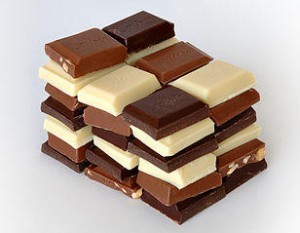Avoid The Winter Weight Gain And Shed The Fat For Summer
As summer approaches up north, it is time to change your wardrobe for something less warm and bulky. Most of us opt for summer clothing that is lighter and often more revealing which means the the unflattering bulges will show quite easily. But is it your imagination or is there really an extra bulge or two that you did not previously notice? It is possibly not your imagination. Seasonal weight changes can vary among people and it is not uncommon to gain weight during winter.
There are several reasons why this occurs and it is important to understand the mechanism behind winter weight gain so as to better structure a pre-summer weight loss program. But remember the basics – weight gain is a result of excessive calorie input (in food) compared to calorie output (through exercise). To lose weight, you have to eat less calories and burn more calories by exercising. There are very few other reasons for sustained weight gain beyond this calorie imbalance. In fact, weight gain for any other reason is still dependent on consuming too many calories.
Inactivity When It Is Cold
We all like to curl up under the covers when it is cold outside. Even if we have to venture outdoors for work and other chores, we tend to be less active than we would in warmer weather. As a result we burn less calories from physical activity when it is cold. But our sedentary lifestyle cannot be entirely to blame despite the fact that we think that we are eating the same amount as we do in summer. Your body may take more calories to keep you warm particularly in very cold climates. So even if you are not as active as you would be in summer, your body may still have to burn more calories to maintain its core temperature. Yet you can still gain weight. The issue lies in eating more than you need to.
TIP: Get up and be active even when it is cold. Jogging on the spot, walking on a treadmill or working out to an aerobics TV show can all be done indoors where you are warm.
Eating More May Be Genetic
There is some evidence to suggest that our appetites increase when it is cold due to the association of winter with famine. This may stem back from the time of our ancestor’s who generally experienced lower food availability when autumn and winter arrived. By eating more we would be storing extra calories as fat for our body to use later when food is scarce. This is known as the thrifty gene hypothesis but it is not a proven scientific fact. The increase in body fat may not have any link to more insulation in order to keep warm as was previously thought. Extra calories gives rise to white fat which is not the same as brown fat that is an effective insulator under the skin.
TIP: Resist the urges to eat more during autumn and winter. Adopt the same calorie-counting habits as you would during summer or when trying to lose weight. A food diary can help you see where you may be going astray.
Indoor Boredom And Snacking
There is only so much you can do to entertain yourself and keep busy when indoors. Some people may be able to amuse themselves indefinitely. But most people will exhaust all entertainment options in a short period of time unless they step out. When boredom strikes we tend to snack, and it is so much easier when at home since the kitchen is just a few steps away. But even some of our winter entertainment does not help keep the snacking at bay. Curling up on the couch to watch a movie or two may include the buttery popcorn, sodas and hot chocolate all of which are laden with calories. Boredom may then not be an issue but the calories quickly pile up.
TIP: Try to keep busy during the cold days even if you are stuck indoors. Choose activities that will keep you active and make snacking difficult rather than entertaining yourself with snacks at hand.

Less Sunlight Means More Sleep
The body’s sleep cycle is significantly influenced by sunlight. As it gets darker, the levels of melatonin increases. Melatonin is produced and secreted by the pineal gland at the base of the brain. Diminishing light detected through the eyes feeds back signals to the pineal gland to increase melatonin secretion, which in turn triggers the sleep cycle. And the cold does not help. All of us would rather be tucked into a warm bed than moving around when it is cold and dark. But more sleep means less activity. Not only will you be burning less calories through reduced physical activity but your body’s metabolic rate decreases during sleep. So it is a double whammy for burning less calories.
TIP: Consider changing the lighting within you home. Bright lights and particularly fluorescent lighting may help reduce your sleep hours if it is excessive. Do not hide behind heavy curtains. Even though there may be less sunlight during winter, try to open the curtains and let what little sunlight there is into your home.
Symptoms Of Winter Blues
Few people experience weight gain as a result of seasonal affective disorder (SAD). Also known as the winter blues, seasonal affective disorder tends to affect people in northern latitudes. But contrary to popular belief, it is not very common – at least not the point where it leads to physical symptoms. Lower energy levels, disinterest in previously enjoyed activities and changes in appetite may all be symptoms of seasonal affective disorder. And it can all contribute to weight gain. The reason for seasonal affective disorder may be more complex than previously thought. It is believed to be a combination of shorter daylight hours and lower levels of vitamin D. But other factors could also be at play.
TIP: Speak to your doctor about seasonal affective disorder if you are experiencing depression that comes on during autumn or winter. Medication may not always be necessary. More sunlight or light therapy and even vitamin D supplementation could do the trick.

Vitamin D May Increase Fat
Studies suggested that lower levels of vitamin D may linked to storing more fat but the exact mechanism is not fully understood. Vitamin D is primarily sourced through sunlight exposure but can also be acquired from certain foods. As discussed above, less sunlight means lower levels of vitamin D. This can alter your mood in ways that makes you eat more and exercise less. But this new finding shows that the issue lies with vitamin D and fat storage directly, even when the winter blues is not in the equation. Remember that you can even have low levels of vitamin D in summer if you do not get enough sunlight or source it from the food.
TIP: Take advantage of what little sunlight may be available by going outdoors during the daylight hours. Try to eat more foods rich in vitamin D like oily fish and offals. Speak to your doctor about vitamin D supplementation.






